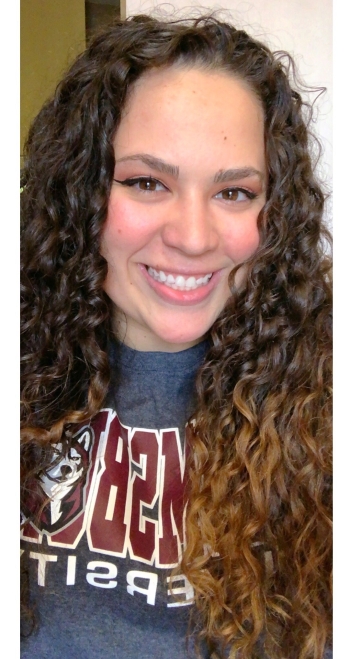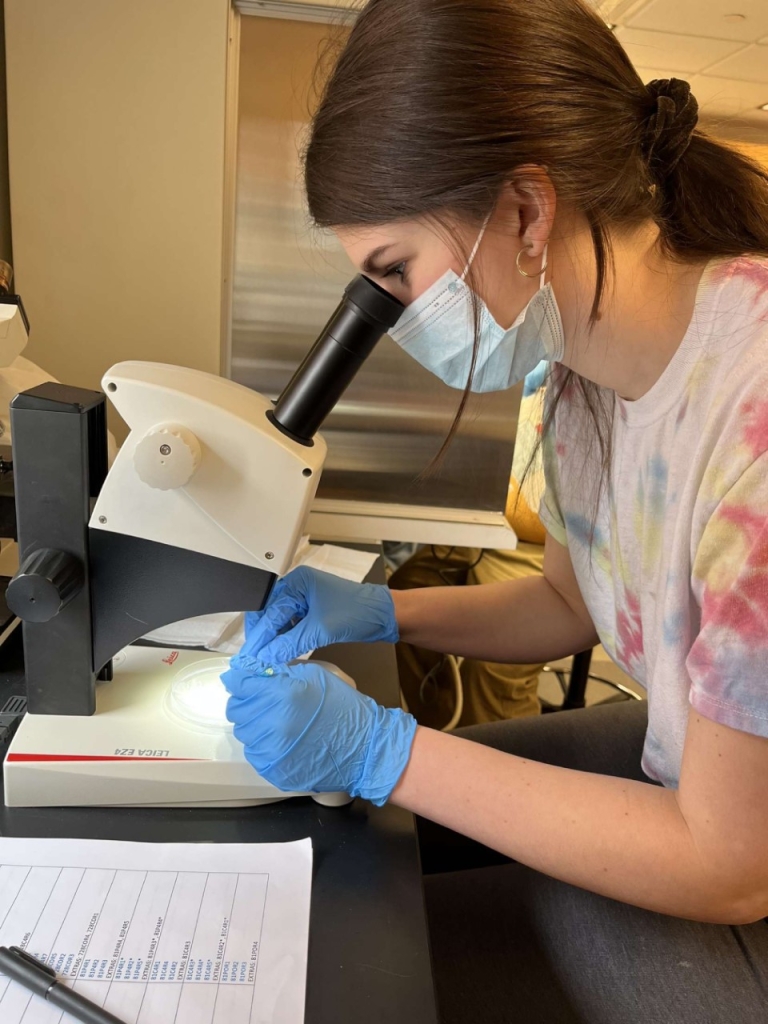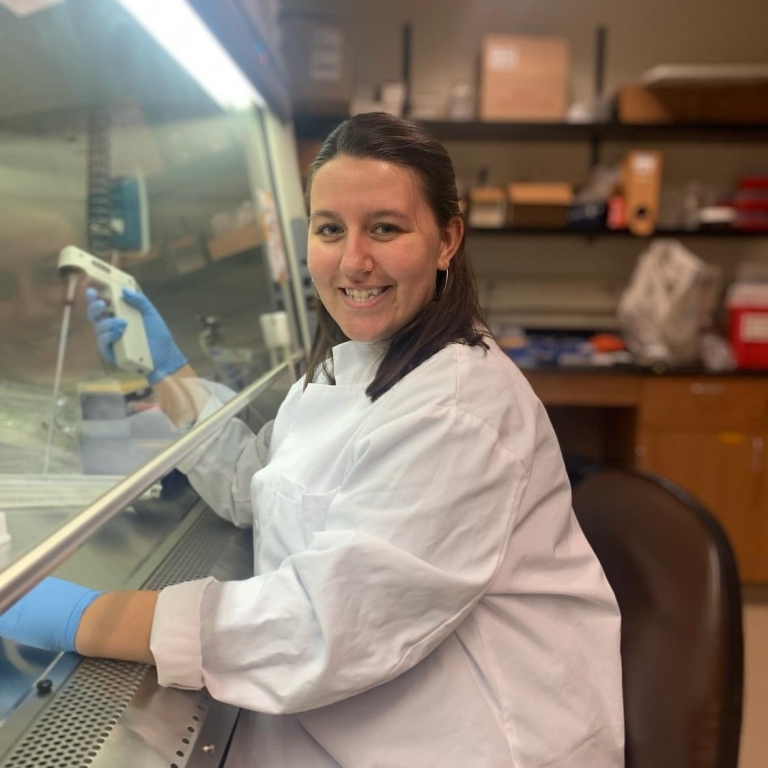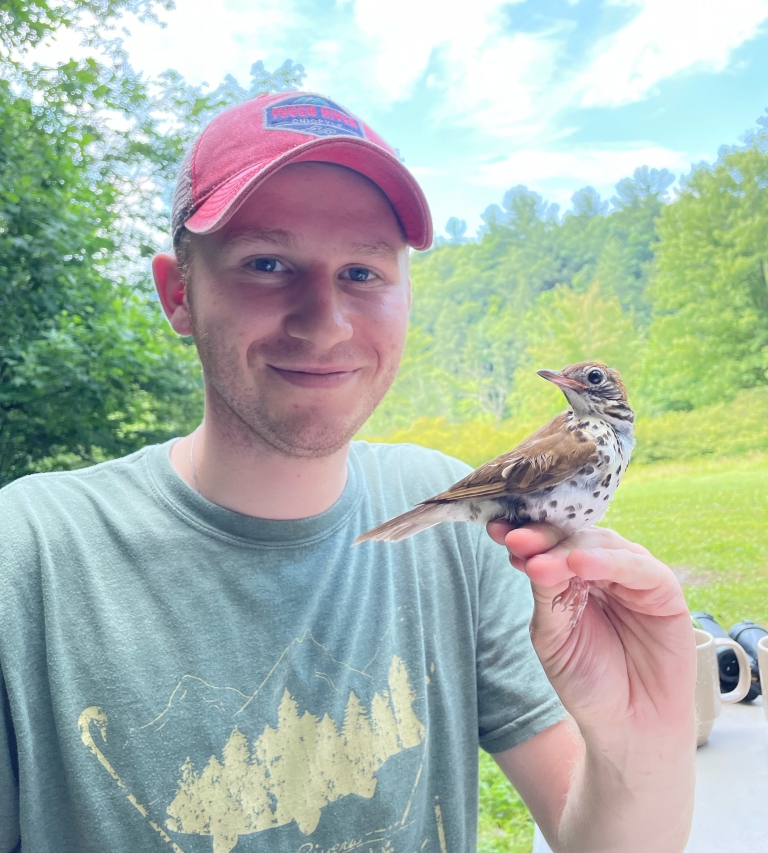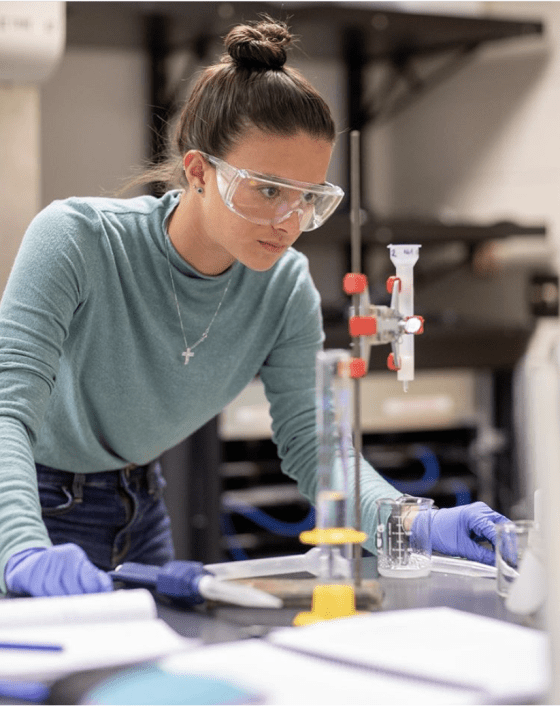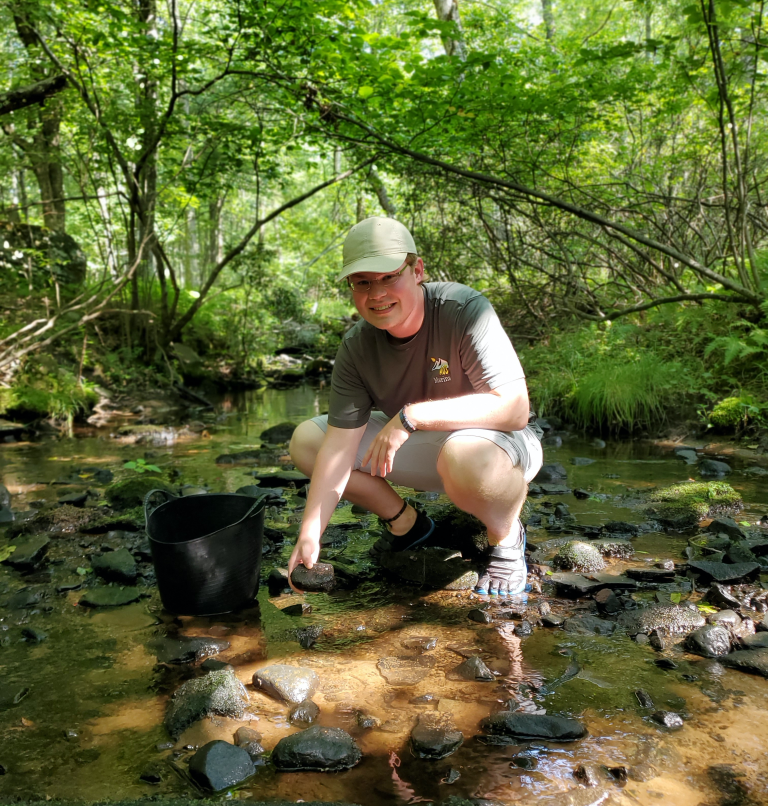
Environmental, Ecology and Field Biology
A number of students are conducting research focused on environmental and ecological phenomenon and issues.

Mentor: Dr. Steven Rier
Keywords: Freshwater Ecology, Water Chemistry, Climate Change, Microbial Ecology
Thesis Proposal Title: Microbial Extracellular Enzymes as Indicators of Riparian and Upstream Forest Cover in Headwater Streams
Abstract: Headwater streams flowing through forested landscapes receive much of their energy from terrestrial sources consisting of coarse, fine, and dissolved organic matter (OM). Most of this OM is broken down and processed by bacteria and fungi. These microorganisms produce extracellular enzymes to facilitate the catabolism and uptake of carbon and nutrients from recalcitrant OM. The relative activities of these different extracellular enzymes can potentially indicate the relative importance of the various organic compounds fueling these systems. Because the spatial cover and composition of upstream and adjacent forests likely influences the quantity and type of OM fueling these systems, we hypothesized that changes in upstream and adjacent forest cover would be reflected in biofilm extracellular enzyme activities. We tested this hypothesis by sampling 23 headwater streams throughout the upper Delaware River basin. We sampled epilithic biofilms for biomass, nutrient content and the activities of seven extracellular enzymes. For each stream, we also measured ecosystem respiration, gross primary productivity, total nitrogen, total phosphorus, dissolved organic carbon concentration, specific UV absorbance, adjacent canopy cover and upstream forest cover. This allowed use to compare the response of extracellular enzymes over a gradient of tree canopy cover and to determine to what degree ecosystem respiration in these streams was tied to the catabolism of various organic compounds as indicated by extracellular enzyme activities.
For more information visit ResearchGate
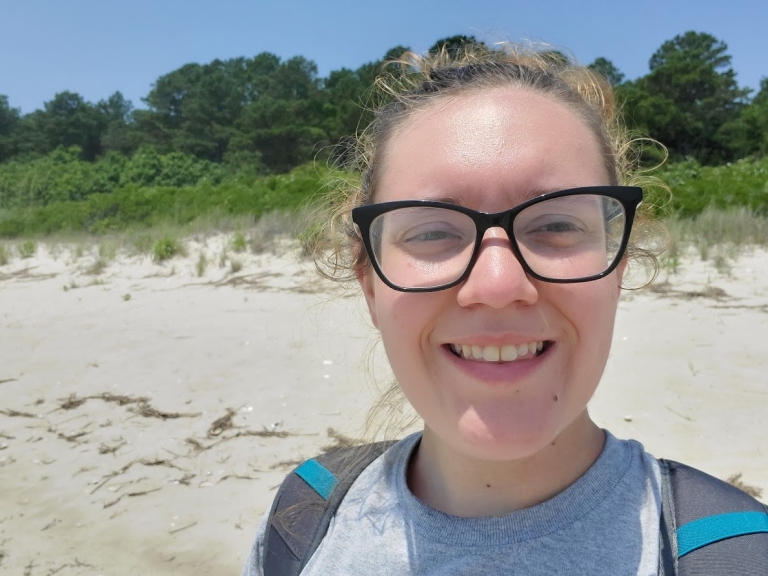
Mentor: Dr. George Chamuris and Dr. Alan Gishlick
Keywords: Ecology, Biodiversity, Species diversity, geology, evolution
Thesis Proposal Title: TBD
For more information visit ResearchGate
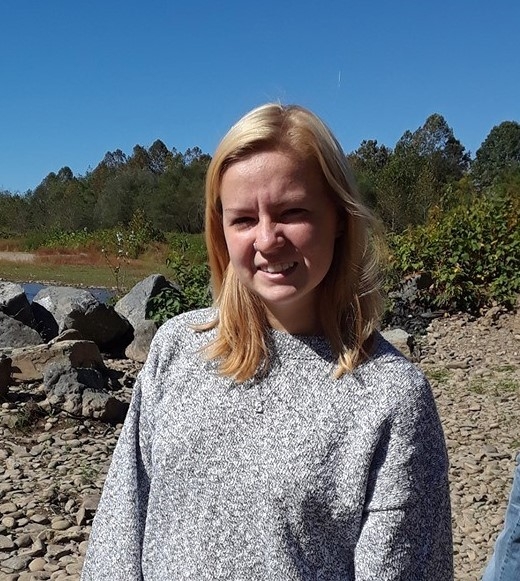
Mentor: Dr. Steven Rier
Keywords: Fresh Water Biology
Thesis Proposal Title: TBD
For more information visit ResearchGate
Mentor: Dr. Benjamin Franek
Keywords: Conservation
Thesis Proposal Title: Microplastics in Macroinvertebrates Become More Abundant with Increasing Stream Order
Mentor: Dr. Thomas Klinger
Keywords: Microplastics, Freshwater Ecology
Thesis Proposal Title: Conservation Practices for Glyptemys insculpta on Pennsylvania Rail Trails
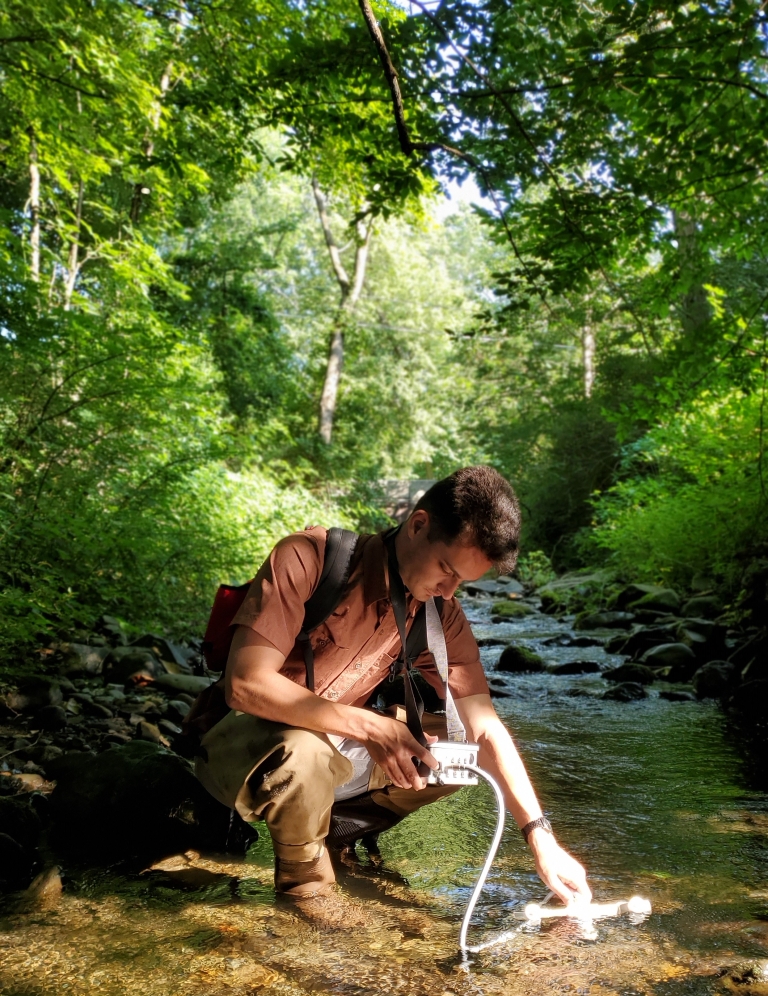
Mentor: Dr. Steven Rier
Keywords: Stream Ecology, Microplastics and Environmental Contaminants
Thesis Project Title: Using Mesocosms to Investigate the Impacts of Polyester Microfibers on Stream Biofilm Structure and Function
Biography: Mitchell Liddick is a hometown resident of Bloomsburg, Pennsylvania. He received his Bachelor’s degrees in Biology and Secondary Education from Bloomsburg University. During his undergraduate career, Mitchell was president and secretary of the Biological & Allied Health Sciences Club, pole vaulted on BU’s Track & Field team, and completed multiple teaching experiences, earning his STEM educator certification. His interest in microplastic research began during his undergraduate time at BU after attending a presentation given by Dr. McClintock, from the University of Alabama at Birmingham. His thesis research aims to identify a polyester microfiber concentration threshold at which biofilm community structure and function are significantly impacted. Furthermore, his research plans to understand the effect microfibers have on algal and bacterial biomass, production, respiration, enzymatic activity, nutrient uptake and community diversity. This will be achieved using Dr. Rier’s artificial stream mesocosms to replicate natural streams in a laboratory setting. After completing his MS in Biology, Mitchell will be attending the University of Notre Dame to work with Dr. Jennifer Tank and receive his PhD.
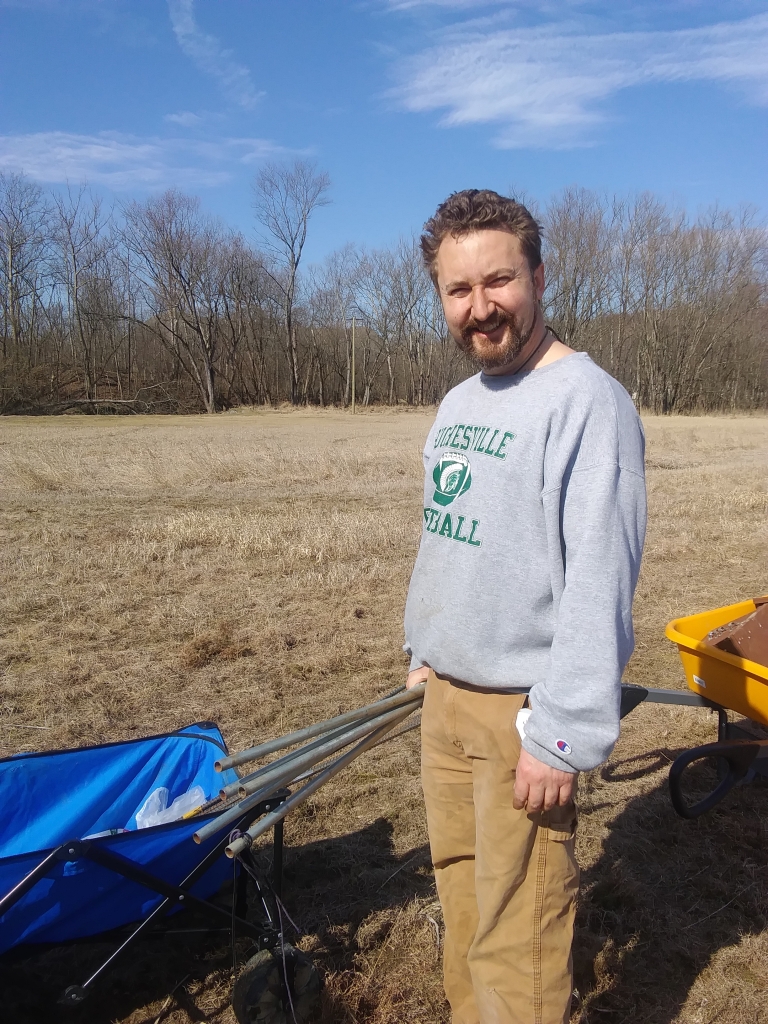
Mentor: Dr. Lauri Green
Keywords: Avian, bird, climate change, food web, foraging, insect, reproduction, Tree Swallow, trophic dynamics
Thesis Project Title: Prey availability for Tree Swallows Tachycineta bicolor in four lentic wetlands: Resistance to phenological mismatch for the year 2020
Abstract: Tree Swallows (Tachycineta bicolor) are found at higher latitudes in North America along many bodies of water during their breading season. These aerial avian insectivores readily feed their young insects they catch on the wing. Tree Swallow proximity to bodies of water infers that these birds primarily feed their young aquatic emergent insects. Emergent insects are often higher in omega 3-fatty acids and bodies of water tend to produce more insects per area than their terrestrial counterparts. It is important to study the interplay between emergent and terrestrial insects, to gain a better understanding of food web dynamics. In the present study, I examined five small lentic wetlands in central Pennsylvania for insect availability and Tree Swallow reproductive events. I used emergent insect traps as well as terrestrial sweep netting to sample the local environment and found that breeding events are coupled strongly with the availability of different classes of insects, primarily dipterans. Climate change stands to disrupt that relationship through phenological mismatches, where insects emerge earlier than the Tree Swallow reproductive events anticipate. Our study found that Tree Swallow reproduction followed the abundance of sweep netted dipterans which have higher abundances and more consistent during the reproductive season. This suggests that Tree Swallows may be resistant to phenological mismatches caused by climate change.

